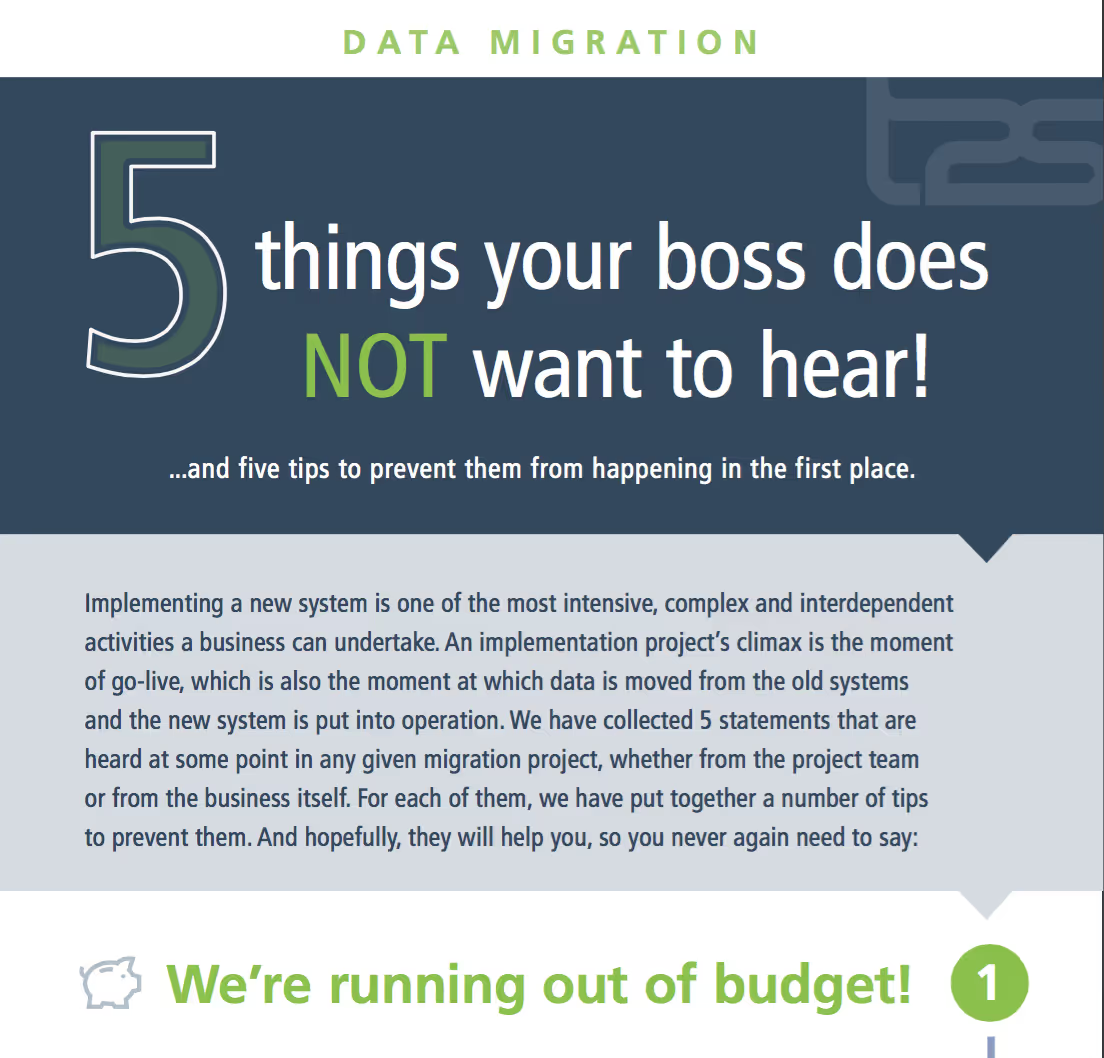Checklist data migration
Explore a checklist for ensuring a successful data migration project. We highlight five common statements that can derail migration efforts and provide five essential tips to prevent these issues from occurring.

Checklist for a successful data migration
Five things your boss does not want to hear …and 5 tips to prevent them from happening in the first place.
We have collected 5 statements that are heard at some point in any given migration project, whether from the project team or from the business itself.
For each of them, we have put together a number of tips to prevent them.
And hopefully, they will help you, so you never again need to say:
- We’re running out of budget!
- We’re running out of time!
- We’re running out of resources!
- The new system is not working!
- We can’t go live!
Data migration for Eichholtz
T2S helped Eichholtz with the data migration to the new IT system by deploying a data specialist alongside the data migration platform & data quality dashboard within the organization on a project basis.
“Type 2 Solutions provided us guidance in the project. The system Type 2 Solutions uses, the Data Migration Platform in combination with the Data Quality Dashboard, works like a charm. We continuously had a reference point available during the migration process; this has been migrated, this had been uploaded and these are the differences.”
Data migration approach
We have over extensive experience with data migration and data integration. In addition to extensive experience with various database platforms, such as Oracle, Microsoft SQL Server, IBM DB2 and MySQL, T2S has experience in migrating data to and integrating data between various IT systems and software packages.
Our data specialists have experience with data migration, integration and data quality projects in various fields such as aviation, finance, food, chemicals, logistics, healthcare, government, IT, mobility, energy, telecom and multimedia.
Read more about our proven approach and extensive experience with data migration and integration.
Interview with Jeroen Raijmakers, IT Director at Eichholtz, about data management.

